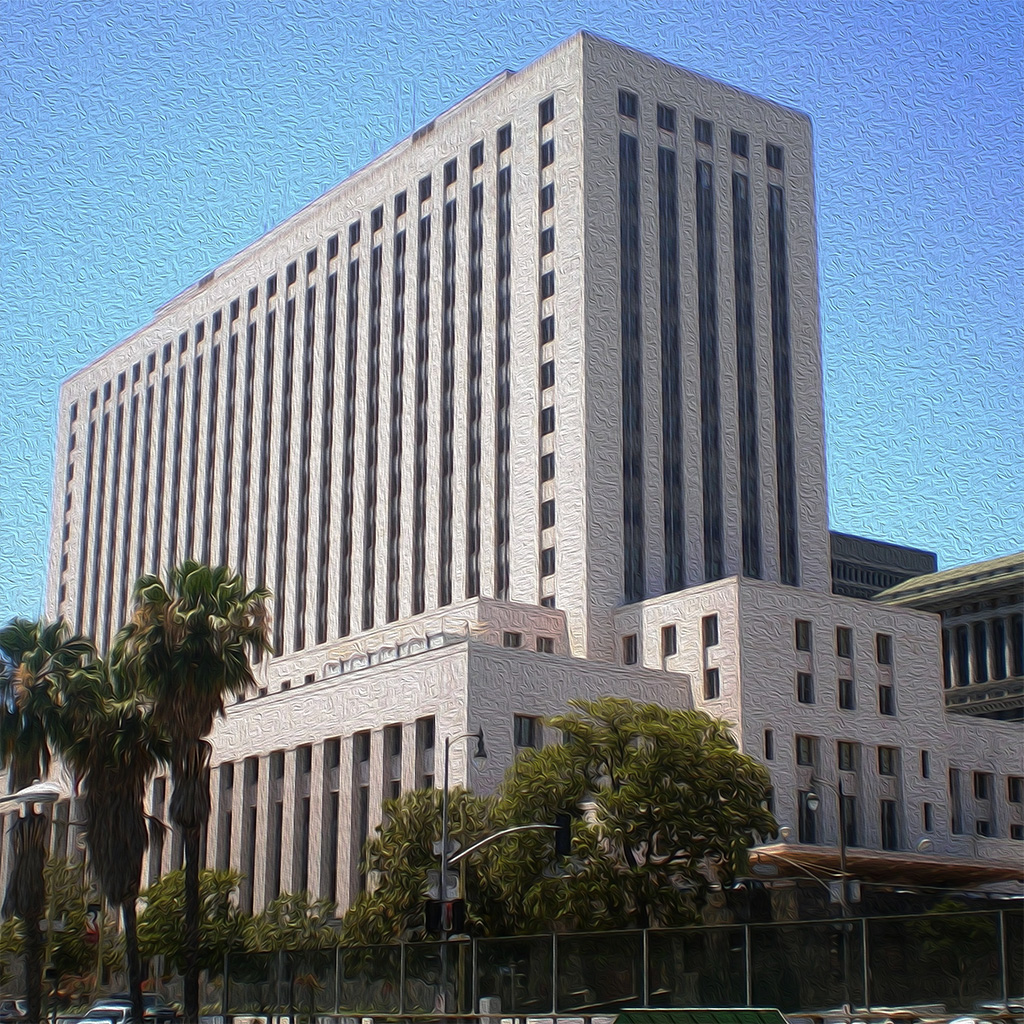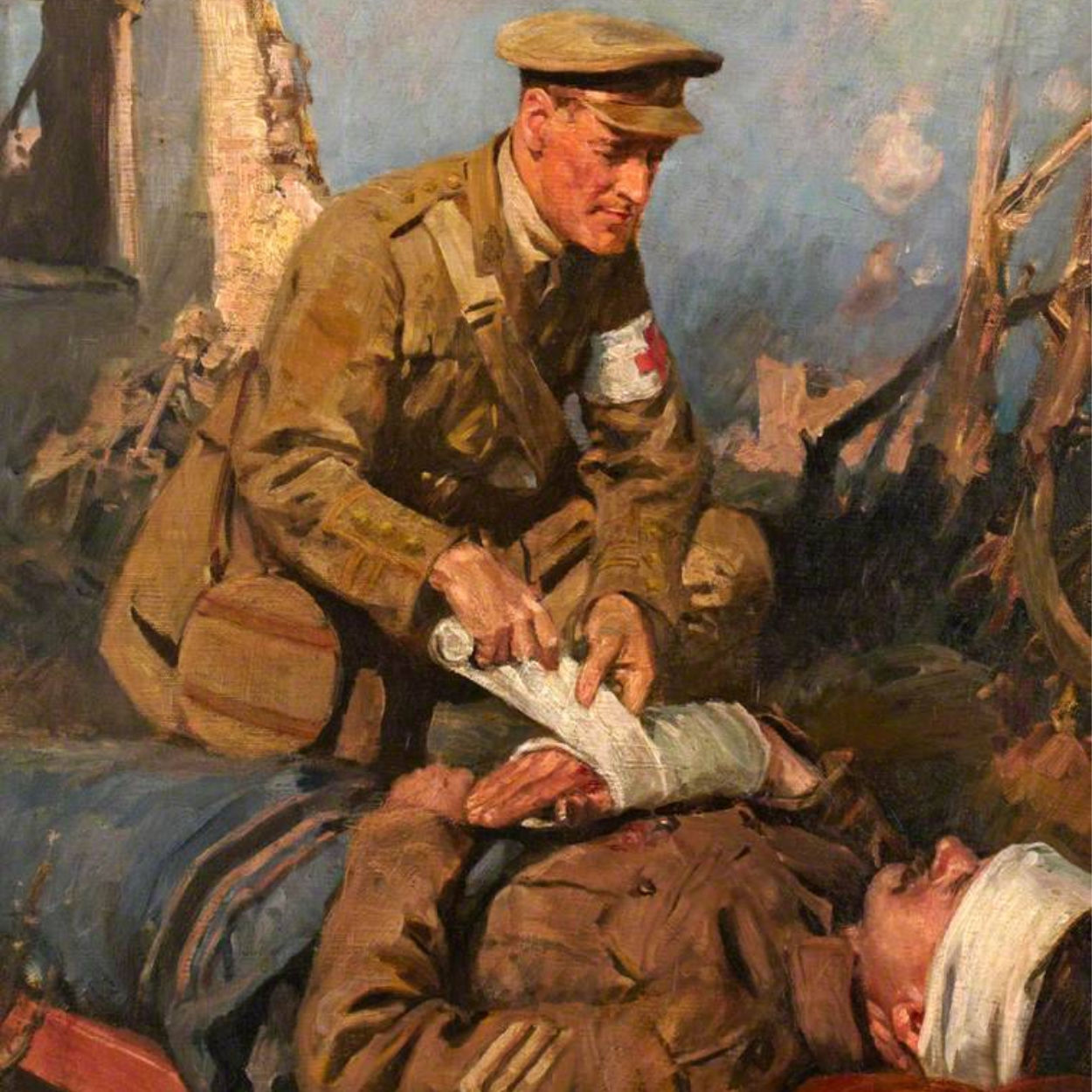Many people talk about peace. But in my work as a therapist, I’ve noticed meaningful differences in how people define the word peace and its role in guiding our lives—differences which hearken back to powerful words in the Book of John: “Peace I leave with you, my peace I give unto you: not as the world giveth, give I unto you. Let not your heart be troubled, neither let it be afraid.”
It’s that distinction between the peace of the world and the peace of the Lord I’d like to explore here, along the way to clarifying what constitutes genuine revelation compared with something else. I will be proposing here that the critical difference to which we ought to pay more attention is whether peace is reduced to a mere feeling of relief or something more holistic that draws us into alignment with God and greater divine power in our lives.
Peace as a feeling of relief. It’s become common for people to declare that they know leaving the Church or embracing beliefs and practices contrary to church doctrines are the right things to do because when they make the decision, they “finally feel peace.” I have heard this in accounts of “coming out” as gay, quitting school, concluding God isn’t real, and decisions to leave marriages and the Church. I’ve also had clients insist that they needed to stop judging themselves as doing something wrong in compulsively viewing pornography and masturbating after what they took as a spiritual feeling of peaceful affirmation that this wasn’t that big of a deal after all. In other words, many of those who decide to leave the Church or live against doctrinal teachings characterize their decision process in a language of having received revelation. Some of these people further affirm that this “revelation” is accurate because of the feeling of “peace” that comes after making the decision.
This peace-of-the-world paradigm involves three interrelated features:
First, while all paradigms of peace involve some lifting of the ongoing burdens that life brings, this one pays special attention to any potential feeling of relief that can sometimes come from finding ways to escape the ongoing struggle with the vicissitudes of mortality and deep questions of the soul. This feeling of relief—however it comes and whatever its source—becomes the central qualifier for determining whether revelation is a genuine direction from God. Genuine revelation is reduced to a mere feeling of relief, a relaxation of emotional tension or conflict, following which no further questions need to be asked.
This popular paradigm of peace is secondly characterized by a release of people from their moral and covenant obligations and responsibilities. As many of us know, staying dedicated to moral obligations towards family, God, and work brings with it a certain measure of intrinsic wrestle with and acceptance of the vicissitudes that life naturally imposes. Yet many who subscribe to a relief-as-peace-that-confirms-revelation model see themselves as being absolved from those obligations once they’ve committed themselves to rejecting any of the larger commitments described earlier. In doing so, they often no longer seem to be bothered by hard questions about how they should live their lives within the moral responsibilities placed upon them and how answering such questions would require them to change and grow. Instead, they adopt a stance of feeling personally “free” (i.e., released) to pursue what they want and avoid the problems and responsibilities they no longer wish to be burdened by. Rather than engaging in the inevitably challenging and stretching work of reconciling with others (or God) or seeking to find peace with both, they can completely abandon these “burdensome” efforts as part of what they have been “freed” from. In short, peace-of-the-world revelation often seems to almost inevitably lead people to see themselves as being released from the personal responsibility to seek the repentance intrinsic to fulfilling moral and covenant responsibilities.
The last characteristic of the peace-of-the-world paradigm is an attempt to refute covenantal obligations entirely by virtue of feeling emboldened to adopt a lifestyle that stands as a seemingly trustworthy refutation of previously endorsed eternal truths and moral commitments. The thinking here seems to be something along the lines of: “After wrestling for a long time with some struggle, I decided to do X, which is contrary to what the gospel teaches. I felt peace after making the decision, so it must be right. Therefore, what the Gospel teaches about X must be wrong because the spirit would never confirm that I do X if it was wrong.”
This is the kind of reasoning that can lead you to feel profoundly justified in embracing a lifestyle not in line with the central doctrines of the gospel. It’s that ultimate feeling of relief, once again, that leads to a belief that you are no longer required to observe moral and covenant obligations. In the wake of such an experience, some cease to ask if what they’re doing is right; as soon as some kind of relief comes, they run with the convenient confirmation that they’re now free to do as they please.
Given all of this, we might rightly consider this first peace-of-the-world paradigm as essentially reductionistic because genuine revelation is reduced to a mere feeling of relief, a relaxation of emotional tension or conflict, following which no further questions need to be asked. That is, all that is required to justify some thought or course of action as genuine revelation, in this case, is a feeling of relief that comes after laying aside any covenantal commitment (even though such abandonment of any serious obligation would bring temporary relief to anyone).
In this way, people need no longer consider if they are living in accordance with gospel standards that make it easier or harder to receive true revelation. There is also no need to question whether the revelation is in line with scripture, both modern and old, whether it leads them further down the covenant path, or whether it leads them to fulfill their covenant obligations towards their family and others. All that matters is that they felt relief after making their decision (at least initially), which surely means they are free to pursue their decision and that God must be on board, too, right?
This highlights another sense of the word reductionistic, wherein the eternal potential of the person is dramatically reduced because revelation in this paradigm frequently leads away from aspirations of eternal growth in favor of temporary relief from the concerns of mortality.
Peace as alignment with God. I once had a client come into my office who recounted a very different experience with peace, one that embodies well what we might call the peace-of-the-Lord paradigm. I have received permission from him to share this story, though I have changed his name. Jason came into therapy for two main reasons—he was seeking freedom from his compulsive pornography use, and he was grieving from losing his job due to being falsely accused of sexual harassment. After a year of us working together, he came to my office for a session, and I asked him how he was doing.
His response was profound. Jason looked at me and said something to the effect of, “Sam, I do not understand it. None of my problems have really gone away. I’m still having to struggle with temptation. I’m still having to work hard at my healing and doing what I know I need to do better. Yet, I feel at peace. Everything is going to be okay.”
He went on to share new enthusiasm, “I want to do better with my scripture study and go back to the temple again.” I was witnessing here what Paul describes as “the peace of God, which passeth all understanding.” It was clear to me that Jason had a very different way of understanding peace and revelation than the prevailing peace-of-the-world paradigm.
In the Church of Jesus Christ’s gospel topics entry on peace, it states:
Many people think of peace as the absence of war. But we can feel peace even in times of war, and we can lack peace even when no war is raging. Peace comes through the gospel—through the Atonement of Jesus Christ, the ministration of the Holy Ghost, and our own righteousness, sincere repentance, and diligent service.
In this text, like with the proceeding account, there are several attributes of this other peace-of-the-Lord paradigm that are apparent:
First and foremost, the peace-of-the-Lord paradigm is characterized by an understanding that revelation is a process that invites people to do that which will redeem them from the painful path of sin through making and keeping sacred covenants. That is accepted as foundational to what the gospel is about and what centrally defines conversion—with redemption and repentance embraced as inescapable parts of the peace offered by the Lord. There is no way to find that peace, from this view, except in following Him and His ways and by doing as He commands in order to be among His covenant people. And the true spirit of revelation is recognized as something inviting people to align themselves with covenantal and moral obligations rather than abandoning them. Ultimately, it’s when people are in line with their eternal purpose and the covenant path that God’s peace truly comes—all of which depends on repentance that brings about redemption through Christ’s name.
This path and the paradigm that encourages it involves a profound level of reassurance. As Elder Bednar has said, “Your repentance and the resulting forgiveness will bring a peace of mind that will enable you to serve with great faith and diligence and inspiration. You deserve the spiritual assurance and confidence that come from true repentance.” As we repent and seek redemption through the Lord, a deeper and more profound reassurance comes than could ever be felt otherwise. With this soul-stretching invitation to repentance, the Lord has promised that we do not have to carry our crosses alone, and comforts us with these priceless words:
But the Comforter, which is the Holy Ghost, whom the Father will send in my name, he shall teach you all things, and bring all things to your remembrance, whatsoever I have said unto you. Peace I leave with you, my peace I give unto you: not as the world giveth, give I unto you. Let not your heart be troubled, neither let it be afraid.
This Holy Ghost is promised to help not only guide us through whatever trouble we may need to pass through—but also to provide precious comfort, reassurance, and strength, especially to those who commit to the covenant path. This revelation and peace are not simply about being relieved from burdens, though that relief may still often come—but are instead primarily about knowing Christ will walk with us in fulfilling our covenants.
Lastly, this kind of peace-of-the-Lord is characterized by genuine revelation. Elder Renlund has outlined 14 principles of revelation that must be followed for revelation to count as genuine and trustworthy—including the understanding that learning to receive revelation takes work, preparation is needed to receive revelation, worthiness is needed to receive revelation, revelation comes within the limits God has set, and revelation will not be contrary to revealed word. In order for any particular thought or direction to count as genuinely inspired, people need to go beyond merely the feeling that accompanies it to seriously consider their own personal preparation to receive revelation and if the impression is in line with revealed doctrine and scripture.
As you can see, from this paradigm, the peace of the Lord can never be reduced to just the feeling of relief that we point toward to confirm any revelation as true. Rather, we must consider all of the principles of revelation that are necessary for the feeling to be considered legitimately inspired confirmation.
These characteristics of the peace-of-the-Lord paradigm could be summarized as peace as atonement and conversion. It is those willing to follow Him and be converted to His ways who receive His peace. That peace is inextricably bound up in being “at one” with Christ—His mind, His heart, His life.
Some clarification. Before I conclude, some clarification is needed for what I have argued. First, I must be clear that not all revelation is a question of being aligned with core doctrines, per se. There are many questions that people take to the Lord that are not eternal in nature, at least, in the sense that covenant obligations and eternal worthiness are not always on the line (e.g., should I go to BYU or the U? or should I take this job?). That being said, this does not mean these same principles of revelation do not apply to such questions. We can feel peace even in times of war, and we can lack peace even when no war is raging.
Being yoked with Christ. I close with my favorite image that represents the peace-of-the-Lord. As all believers know well, the Lord invites, “Come unto me, all ye that labor and are heavy laden, and I will give you rest. Take my yoke upon you, and learn of me; for I am meek and lowly in heart: and ye shall find rest unto your souls. For my yoke is easy, and my burden is light.”
I believe the Lord desires to bring peace and rest into our lives. But this sacred text does not invoke an image of peace that is merely relief in which we can be released to go do as we please. Instead, these verses invoke an image in which we are called upon to work the fields of the Kingdom of God, to plow them and take care of them—knowing there is a great work to be done. There are things the Lord would have us do, and there is a plan for what our lives should become.
Surely there is still a field to be plowed in each of our lives. However, we are not called upon to plow them alone. We are reassured that if we are willing to carry the right yoke, there is someone very capable of carrying the yoke with us—and making it much lighter than it would otherwise be. As we take up our own cross or yoke, look to the side every once in a while to see if you are accompanied by the greatest source of strength—the Savior. If so, he will encourage us, “Go to, and labor in the vineyard, with your might,” and reassure us “the Lord of the vineyard” will “[labor also with us].”
This is where rest and peace are found. It’s not just a feeling, it is an act of being converted to the enormous and mighty work of Christ—and joining Him in bringing it to pass.
















